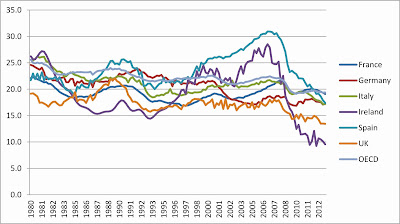Schengen repareren is niet voldoende
Het oplossen van de problemen van het Schengengebied zal Europa’s vluchtelingencrisis niet verhelpen. Dit is een crisis in buitenlandpolitiek die overloopt naar binnenlands terrein; het zal zowel buiten als binnen Europa opgelost moeten worden.
In januari gaf de Europese Commissie Griekenland drie maanden om haar grenscontroles te verbeteren, en vluchtelingen en migranten effectiever te administreren, of schorsing te riskeren uit het grenzenloze Schengengebied. Grenscontroles zijn opnieuw ingesteld door zes van de zesentwintig Schengenstaten (Oostenrijk, Frankrijk, Denemarken, Duitsland, Noorwegen en Zweden).
Hongarije bouwde vorige jaar een hek om migranten die vanuit Servië aankomen buiten te houden. EU-ministers discussiëren over de vraag of men de Schengenovereenkomsten voor twee jaar moet opschorten.
De EU kijkt naar binnen voor oplossingen van haar problemen, terwijl het eveneens de blik naar buiten zou moeten werpen.
De vluchtelingencrisis is niet louter het gevolg van de tekortkomingen van Schengen. Overheden zijn overweldigd door de enorme aantallen immigranten, en zelfs met betere beleidsmaatregelen om migratie en grensbewaking te regelen, zouden ze worstelen om de massa’s die de korte trip van Turkije naar de Griekse eilanden maken beheersbaar te houden.
Wanneer vluchtelingen eenmaal de Griekse territoriale wateren bereiken, worden ze Europa’s probleem.
Zeker zijn er veel economische migranten die naar Europa komen om hier het geluk te beproeven, maar de meerderheid van degenen die het afgelopen jaar naar de Griekse eilanden en Italië zijn afgereisd, zijn echte vluchtelingen geweest.

